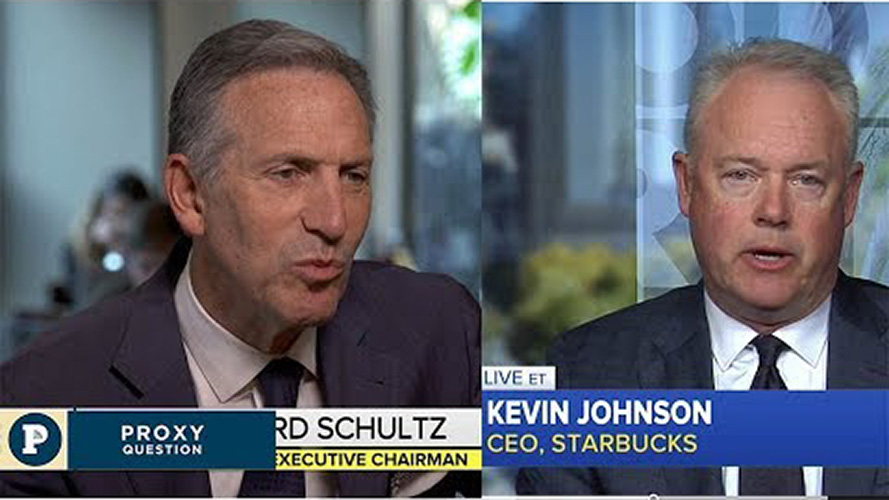Starbucks Executives Respond to Common Reporter Tactic in Philadelphia Incident Response Interviews
Starbucks executives provided textbook examples on how to respond to tough questions in a crisis following the arrest of two African American men in one of the company’s Philadelphia stores. Media trainer Russ Rhea with the Predictive Media Network has an analysis of the common question types reporters asked the Starbucks spokespeople.
Kevin Johnson, Starbucks CEO:
First of all, I’ll say the circumstances surrounding the incident, and the outcome in our store on Thursday, were reprehensible.
Howard Schultz, Starbucks Chairman:
I think what occurred was reprehensible at every single level.
Russ Rhea:
Hi. I’m Russ Rhea.. In crisis communication, shifting blame should be avoided in the early stages of the crisis. Acknowledging something bad has happened, taking responsibility, and focusing on corrective action has been shown, time and time again, to be an effective first step in crisis recovery.
That’s exactly what several Starbucks executives did after their high profile incident in Philadelphia. As bad as the situation was for Starbucks, you have to hand it to their spokespeople for being well prepared and being consistent with their messaging and interviews.
When anticipating questions they likely faced, it’s a pretty safe bet that journalists were going to ask them about company policy for calling police when customers don’t order anything, and the motivations of the manager whose 911 call led to the arrest of two African American men. Starbucks spokespeople had a message ready to respond to any question related to policy and the manager’s actions. Here’s Starbucks Chief Operating Officer Rosalind Brewer on NPR.
NPR interviewer:
“Are you saying that this employee was acting out of some kind of racial discrimination against these two people?”
Rosalind Brewer, Starbucks COO:
“You know, it would be, you know, easy for us to say that this was a one employee situation, but I have to tell you, you know, it’s time for us to, and myself included, to just take personal responsibility here.”
Russ Rhea:
CEO Kevin Johnson got a similar question on Good Morning America.
Robin Roberts, Good Morning America:
“People are wondering will any disciplinary action be taken against the employee?”
Kevin Johnson, Starbucks CEO:
“Well, while I know it’s easy for me to say and point blame to one person in this incident. You know, my responsibility is to look, not only to that individual, but look more broadly at the circumstances that set that up just to ensure that this never happens again.”
Russ Rhea
Johnson responded well to a common question type that we call, a proxy question. When a reporter says something like, “Many people are saying this,” or “A lot of people are wondering.” Well instead of providing a direct answer to an on the spot question of what’s going to happen to the manager, Johnson had a better response where he took responsibility. The anchors on the set even praised him for owning up to what happened.
GMA Anchors:
“This guy did not hedge, took full responsibility. He said he’s going to fix it, no equivocation. Textbook.
“”Yes, I know we rarely see that from a CEO.”
Russ Rhea:
How Starbucks recovers will be something to follow over time, but the executives owning up to a bigger issue than the one incident was a good start. Thanks for watching.

